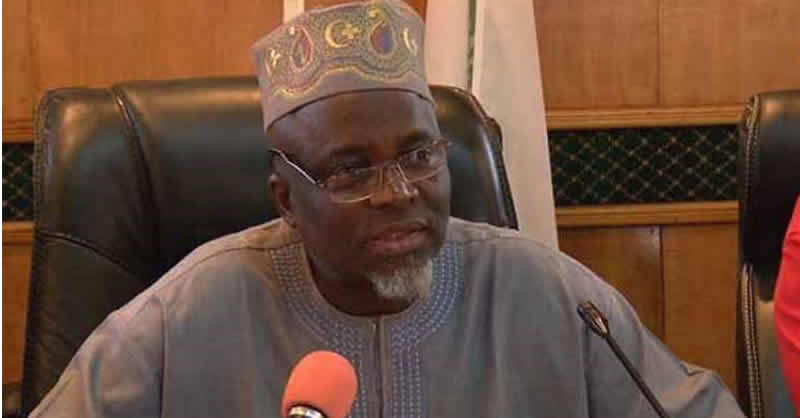The Joint Admissions and Matriculation Board, JAMB, has rolled out stringent procedures for screening of exceptional Unified Tertiary Matriculation Examination, UTME, candidates, who are still under the age of 16 years for admission into Nigerian universities in the 2025/2026 academic session.
JAMB Registrar, Prof. Ishaq Oloyede, who rolled out the measures during a virtual meeting with vice chancellors and heads of admissions on Wednesday in Abuja, said the Board would no longer tolerate the “academic abuse” of pushing psychologically and emotionally unprepared children into the rigours of university life.
The move follows a government policy, which pegged the official minimum age for admission into tertiary institutions at 16 years, with exceptions for high performing candidates under 16.
Minister of Education, Dr. Tunji Alausa, who presented the policy at the 2025 policy meeting of JAMB, said it aims to balance cognitive maturity and academic preparedness, and curb the growing trend of underage candidates in Nigerian universities.
While reaffirming 16 years as the minimum entry age for tertiary education, Oloyede on Wednesday said underage candidates would only be considered on clearly proven grounds of exceptional academic brilliance.
“We are not saying no child under 16 will be admitted, but they must pass through a rigorous screening process that confirms they are truly gifted. This policy is not just about age; it’s about maturity, capacity, and long-term wellbeing,” he said.
He maintained that to qualify for consideration, under-16 candidates must meet three academic criteria, namely: a minimum UTME score of 320 out of 400 (80%), a post-UTME score of at least 80%, and a minimum of 80% in a single sitting of WAEC or NECO, amounting to 24 points out of 30.
Oloyede also outlawed the combination of results from two different exam bodies such as mixing WAEC and NECO results for such category of candidates, adding that science students must include mathematics in their top subjects, while arts students must include English.
He urged relevant institutions to assess all under-16 candidates through a dedicated post-UTME, even if the school has suspended such a process for the general admission population. JAMB will then collate the academic records and forward only those who meet all benchmarks for further screening.
Meanwhile, JAMB has also inaugurated a 23-man National Committee on Underage Admission, chaired by its Registrar, Oloyede, to carry out the screening of the underage candidates in Abuja, Lagos and Owerri.
The board also announced the introduction of a fourth layer of assessment that includes affective and psychomotor evaluations, areas previously overlooked in the admissions process.
A subcommittee of education experts was also set up to design the screening template to ensure the emotional and psychological preparedness of the candidates.
The committee, chaired by Prof. Taoheed Adedoja, a former Minister of Sports and a renowned expert in special education, has been given one week to submit its framework, while the actual screening of candidates will take place in Abuja, Lagos, and Owerri.
“We have decided that between now and mid-September, the candidates, out of the 599 those that will scale the eventual order will be announced. And their school search will be weighed. Of course, they will score, they have to score 80 percent in school search.
“They will write post-UTME independently. The institutions will submit, later by 16th of September, they will submit the scores of the post-UTME, and anybody who is below 80 is already out of it.
“Then the panel of experts that will consider them, that will sit in Abuja, Lagos, and Oweri. So these are the decisions we have taken, and we are emphasizing to parents not to be desperate, because these children, we must allow them to mature, or to show what they are made of. Parents, we are more afraid of parents than even the young ones themselves,” he said.
Oloyede disclosed that out of the over 38,000 underage candidates who applied for admission, only 599 scored 320 and above in UTME, justifying the need for a tight filter.
“These are the only ones qualified for possible waiver consideration. And even they are not guaranteed admission unless cleared by our multi-layered screening system,” he said.
He noted that JAMB has already removed all under-16 candidates from its Central Admissions Processing System, CAPS, and institutions willing to admit them must obtain JAMB’s approval or face sanctions.
The JAMB boss also announced that at least four universities have written to JAMB, stating categorically that they will not admit underage candidates under any circumstance.
The universities include the Air Force Institute of Technology, Kaduna; Abubakar Tafawa Balewa University, Bauchi; University of Jos; and Osun State University.
He advised affected candidates to select alternative institutions that are open to JAMB-cleared exceptional applicants.
The Registrar blamed poor policy implementation and cultural pressures for the prevalence of underage candidates.
He cited issues such as early enrollment in primary school, unofficial elimination of Primary Six in many states, proliferation of ‘miracle’ tutorial centres, and parents seeking social validation through their children’s premature academic milestones as factors fueling underage applications.
“Many parents use their children’s academic progression to boost their own image in society. It’s a toxic culture that sacrifices the child’s psychological development,” Oloyede said.
He urged institutions to cooperate fully with the new policy, stressing that the goal is to protect students and safeguard academic standards.
“This is not about JAMB. It is about the future of our children and the integrity of our education system,” he added.
